Filter by

Communities and Museums in the 21st Century
Communities and Museums in the 21st Century brings together innovative, multidisciplinary perspectives on contemporary museology and participatory museum practice that contribute to wider debates on museum communities, heritage, and sustainability. Set within the context of globalisation and decolonisation, this book draws upon bi-regional research that will enrich our understanding of the c…
- Edition
- -
- ISBN/ISSN
- 9781003288138
- Collation
- -
- Series Title
- -
- Call Number
- -
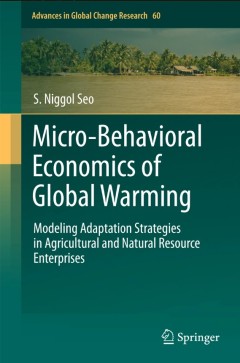
Micro-Behavioral Economics of Global Warming
This book presents a foundation for studying the micro-behavioral economics of global warming. The author develops an empirical model, named the Geographically-scaled Micro econometric model of Adapting Portfolios (G-MAP) in response to climatic changes and risks. The G-MAP model is applied to observed decisions of agricultural and natural resource enterprises in Sub-Saharan Africa and South Am…
- Edition
- 1
- ISBN/ISSN
- 978-3-319-15945-4
- Collation
- IX, 102
- Series Title
- Advances in Global Change Research
- Call Number
- -

Life Cycle and Sustainability of Abrasive Tools
This monograph focuses on abrasive tools for grinding, polishing, honing, and lapping operations. The book describes the life cycle of abrasive tools from raw material processing of abrasive grits and bonding, manufacturing of monolithic or multi-layered tools, tool use to tool end-of-life. Moreover, this work highlights sustainability challenges including economic, environmental, social and te…
- Edition
- -
- ISBN/ISSN
- 978-3-319-28346-3
- Collation
- -
- Series Title
- -
- Call Number
- -
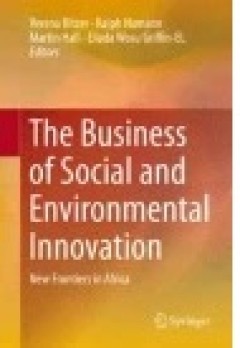
The Business of Social and Environmental Innovation
In the face of limited progress toward meeting Millennium Development Goals or addressing climate change and resource degradation, increasing attention turns to harnessing the entrepreneurial, innovative, managerial and financial capacities of business for improved social and environmental outcomes. A more proactive role for business in sustainable development is especially pertinent in sub-Sah…
- Edition
- -
- ISBN/ISSN
- 978-3-319-04051-6
- Collation
- XI, 235
- Series Title
- -
- Call Number
- -
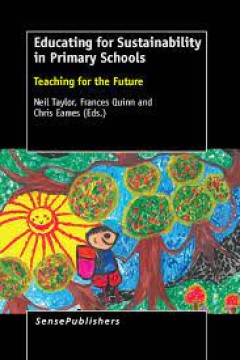
Educating for Sustainability in Primary Schools
Education for Sustainability is a key priority in today’s schools, as our society seeks to find a balance between environmental, social, cultural, political and economic imperatives that affect our future. As young children will become the next generation of adults, it is vital that they are educated about sustainability issues, so that they can learn to make informed decisions and take posit…
- Edition
- 1
- ISBN/ISSN
- 978-94-6300-046-8
- Collation
- -
- Series Title
- -
- Call Number
- X, 370
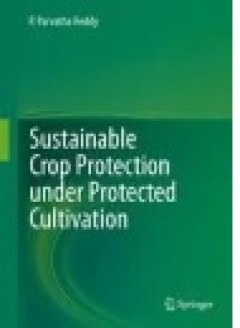
Sustainable Crop Protection under Protected Cultivation
This book focuses on pests (insect and mite) and diseases (fungal, bacterial, viral and nematode) in protected horticulture (fruits, vegetables and ornamentals) using physical, cultural, chemical, biological, host resistance, and integrated methods. It opens with chapters describing the setting in which integrated pest and disease control operates, i.e., the greenhouse and its environment. Subs…
- Edition
- -
- ISBN/ISSN
- 978-981-287-952-3
- Collation
- XXX, 434
- Series Title
- -
- Call Number
- -
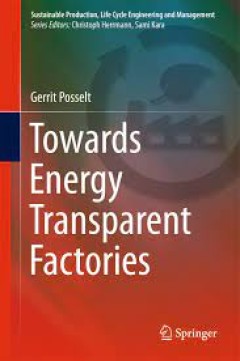
Towards Energy Transparent Factories
This monograph provides a methodological approach for establishing demand-oriented levels of energy transparency of factories. The author presents a systematic indication of energy drivers and cost factors, taking into account the interdependencies between facility and production domains. Particular attention is given to energy flow metering and monitoring. Readers will also be provided with an…
- Edition
- 1
- ISBN/ISSN
- 978-3-319-20868-8
- Collation
- XXXII, 284
- Series Title
- Sustainable Production, Life Cycle Engineering and Management
- Call Number
- -
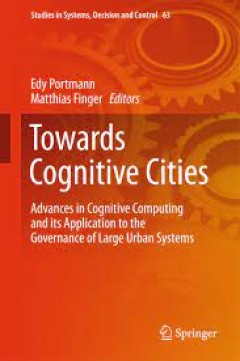
Towards Cognitive Cities
This book introduces the readers to the new concept of cognitive cities. It demonstrates why cities need to become cognitive and why therefore a concept of cognitive city is needed. It highlights the main building blocks of cognitive cities and illustrates the concept by various cases. Following a concise introductory chapter the book features nine chapters illustrating various aspects and dime…
- Edition
- 1
- ISBN/ISSN
- 978-3-319-33798-2
- Collation
- XVII, 215
- Series Title
- Studies in Systems, Decision and Control
- Call Number
- -
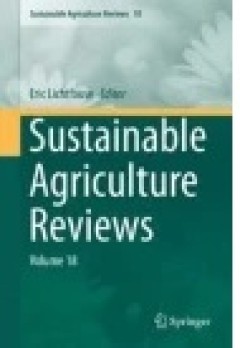
Sustainable Agriculture Reviews
This book features review articles that analyze current agricultural issues and knowledge. It also proposes novel, environmentally friendly solutions that are based on integrated information from such fields as agroecology, soil science, molecular biology, chemistry, toxicology, economics and the social sciences. Coverage examines ways to produce food and energy in a sustainable way for huma…
- Edition
- Volume 18
- ISBN/ISSN
- 978-3-319-21629-4
- Collation
- VI, 319
- Series Title
- Sustainable Agriculture Reviews
- Call Number
- -
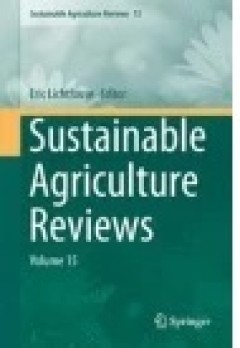
Sustainable Agriculture Reviews
Sustainable agriculture is a rapidly growing field aiming at producing food and energy in a sustainable way for humans and their children. Sustainable agriculture is a discipline that addresses current issues such as climate change, increasing food and fuel prices, poor-nation starvation, rich-nation obesity, water pollution, soil erosion, fertility loss, pest control and biodiversity depletion…
- Edition
- Volume 17
- ISBN/ISSN
- 978-3-319-16742-8
- Collation
- VI, 366
- Series Title
- Sustainable Agriculture Reviews
- Call Number
- -
 Computer Science, Information & General Works
Computer Science, Information & General Works  Philosophy & Psychology
Philosophy & Psychology  Religion
Religion  Social Sciences
Social Sciences  Language
Language  Pure Science
Pure Science  Applied Sciences
Applied Sciences  Art & Recreation
Art & Recreation  Literature
Literature  History & Geography
History & Geography